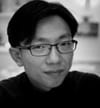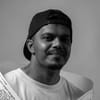- Home
- April 2024
- “The Islander Surge”: Exploring Cultural Uniqueness in Music
“The Islander Surge”: Exploring Cultural Uniqueness in Music
by
Pan Yi Chieh
Previous Post
Finally a Trip to Beijing: A Personal Cross-Cultural Connection
5 min read
MY FASCINATION WITH Chinese culture started at age nine, when I transferred to a Chinese vernacular school. While other children watched cartoons on weekends, I...
Next Post
Pursuing the Meaning of Equality and Liberty (With Some AI Assistance)
4 min read
WHETHER WE LIKE to think so or not, modern political thought gained effective sloganic expression during the French Revolution (in 1789), incidentally around th...
You might also like
From Hillview to Wellesley: The Evolution of a Pioneering Boys’ School
9 min read
JALAN SULTAN AZLAN SHAH, formerly known as Northam Road, hugs the contours of North Beach, extending towards Gurney Drive. With the panoramic views it offers of...
Events in April
4 min read
LEARNINGOrganised by Penang Math Platform, MathBoost is a fun and engaging app-based learning experience focusing on arithmetic operations and numeracy skills f...





